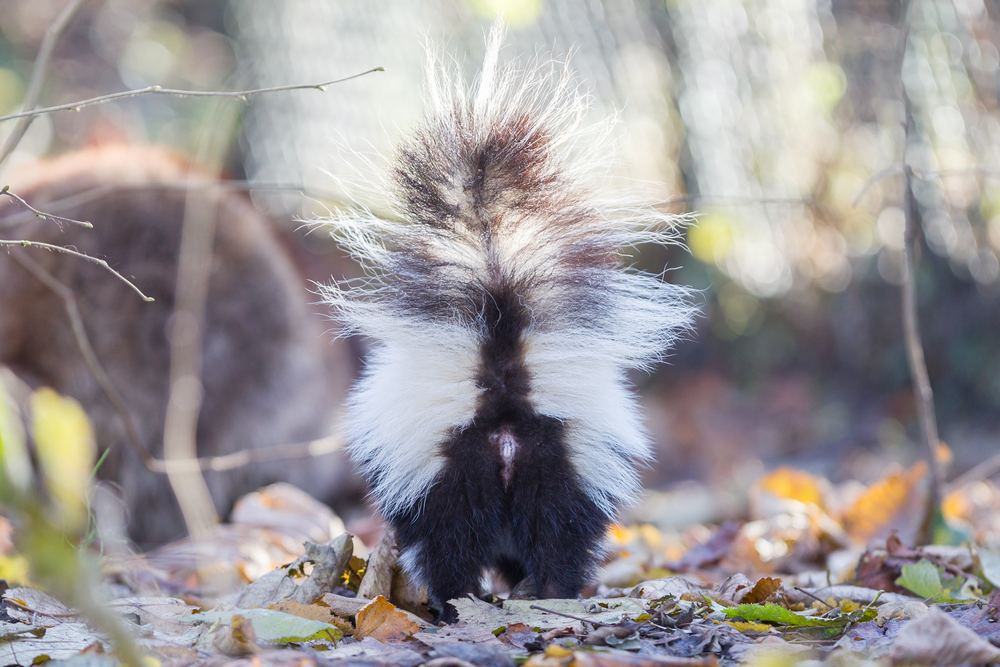Love Stinks: How to handle skunk mating season

February is the month of love for both humans and their striped foes. It’s skunk mating season, y’all, and it’s about to get stinky if you don’t read up!
Skunks have already started getting down in the den, and will continue through mid-April. Male skunks are a bit more promiscuous than females, waddling from den to den to plant their stinky seed. So, these are the ones you have to be concerned about.
So, what do you do if one of these abominable anus-possessing creatures makes its way on to your property?
First of all, don’t panic! Skunks are not your enemy. They rarely resort to spraying and actually play a very important role in the ecosystem: they eat all those pesky bugs you call on your significant other to squash.
BROUGHT TO YOU BY
However, if you do encounter the critter and they are either stamping their feet or raising up on their hind legs, consider yourself warned. Give the animal its space.
Do not try to remove a skunk from your property by yourself. Give it a day or two because, chances are, it will leave on its own. But, if you see the little guy or girl making itself at home, contact Ohio Wildlife Center that has trained professionals on hand to deal with these very situations.
SCRAM! (Suburban Commercial and Residential Animal Management) Wildlife Control is a service of Ohio Wildlife Center providing central Ohio with NON-LETHAL solutions to human-wildlife conflicts in the home or business.
To learn more about SCRAM! or to contact them, click here.
To prevent skunks from settling on your property, follow these steps from Terminix:
- Patch holes around your foundation. Skunks are great diggers. If you’re using fencing or mesh to close off certain areas, bury the material at least one and a half to two feet down. It’s important to make sure skunks are outside before you seal up access points, or you may end up with animals trapped under or inside your house.
- Eliminate possible den sites. Removing wood and rock piles from porches and patios and clearing away debris around the home helps reduce sites for skunks to establish a den.
- Get rid of bugs and rodents. These are favorite foods among skunks. If a skunk’s food source disappears, it may move on.
- Feed your pets inside. Skunks love dog and cat food. They also enjoy feeding on the roaches and other bugs that pet food attracts. If you have outdoor pets, feed them during the day, and then remove any uneaten food before evening, when skunks are most active.
- Store bird and pet food in an outdoor storage building or in your garage. Ensure these items are kept in sealed containers in hard to access places to prevent an easy meal for skunks.
- Make sure garbage cans have tight-fitting lids. Skunks aren’t good climbers, so keeping garbage can openings sealed and off the ground are great deterrents.
- Disturb the peace. If you do locate a skunk’s den, keep up a campaign of gentle harassment by covering up the opening with leaves or straw. Eventually the skunk may relocate.
BROUGHT TO YOU BY



